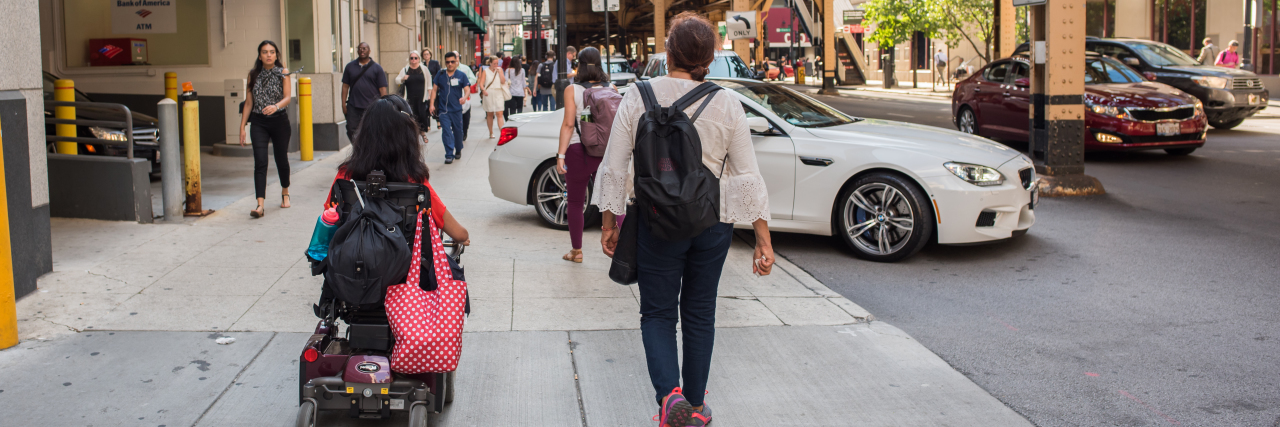“Daddy, what’s that?” is a question I often hear from little children when they see me in my wheelchair. I admire them for their inquisitiveness and bravery. It seems like they always have to ask the question “why?” So it comes as a surprise to me when I see adults trying to hush them. I feel the world nowadays is becoming too PC. We can’t even relate to other human beings because we spend so much time trying to make each other comfortable that we don’t learn about each other’s differences. That’s why I always feel the need to be a teacher to little children and open their mind to my world, a world few able-bodied people know.
The first time a child asked about my wheelchair I was with my mother. I remember thinking to myself “that little kid was pretty brave” and I was determined to help her learn more about me. Kids are always staring, but rather than be turned off by it I embrace it as a chance to learn why they are so nervous and help them understand. Some people in wheelchairs don’t be like stared at; they feel like a sideshow or a circus act. While that’s understandable, I believe it’s a little one’s natural inclination to stare, so why be so offended?
As we grow older, the stares become less commonplace because people begin to realize that it’s rude and offensive to stare at someone for a long time. The questions about disability seem less commonplace. However, awareness about the challenges and differences we face as people with disabilities also goes down. That’s why I’m curious as to why adults aren’t quite as inquisitive as children. Why are they so worried about offending us? Knowledge is power and understanding is power. Therefore I believe we as disabled adults should never be afraid to open up about our disabilities. I certainly am not, but the only reason I don’t do so is because I know it sometimes makes
adults feel uncomfortable, and I don’t want any awkward moments or pauses.
So how can disabled people learn to become teachers? Firstly, I believe we must embrace the fact that we are different. We cannot allow stereotyping by society to represent what our disability means to us, the individuals living with it. Secondly, we must learn to become extroverts, albeit slightly for those people with disabilities who are more shy. We must open our mouths and start the conversation so we become leaders for our community. When we change the way we think, we change people’s perceptions of the challenges we face.
Every day we disabled people are faced with challenges — that’s a part of life that’s no different from anyone else! How we face those challenges is how we become stronger. I encourage my fellow rollers/people with disabilities to speak up. Be proud and teach and never lose faith in yourself and your identity.
Photo via Getty images.

